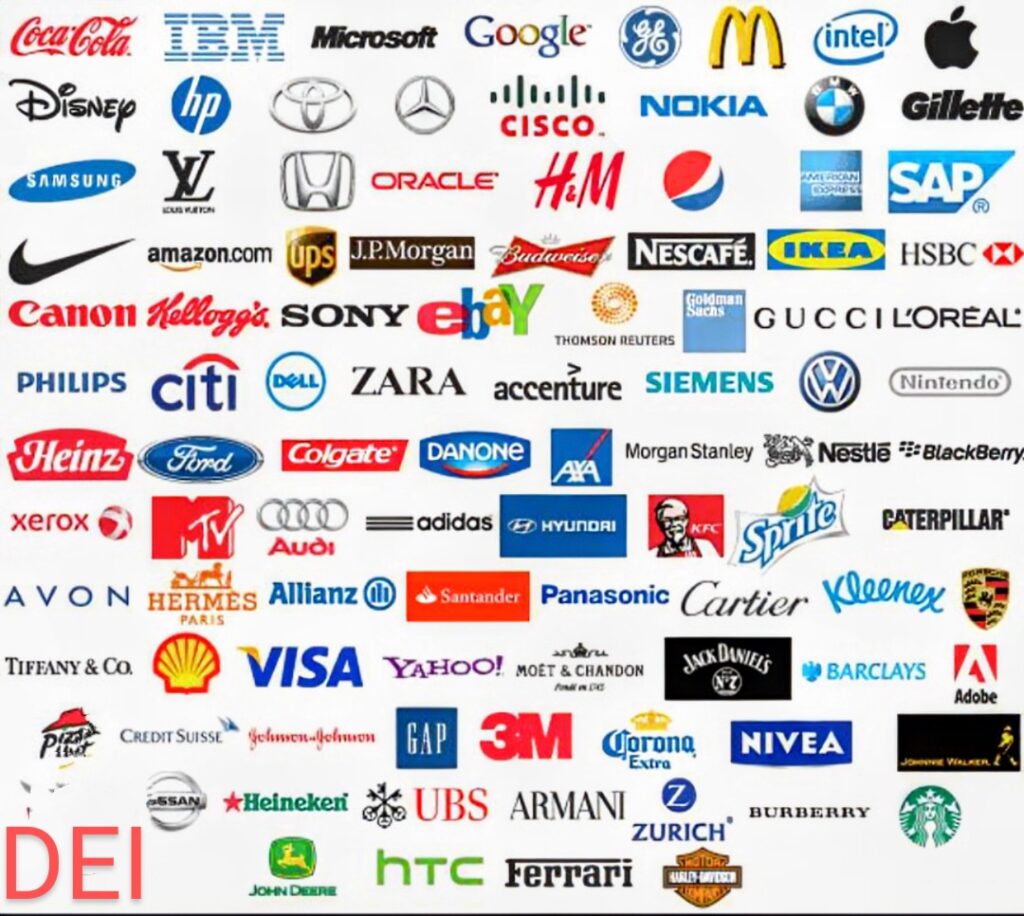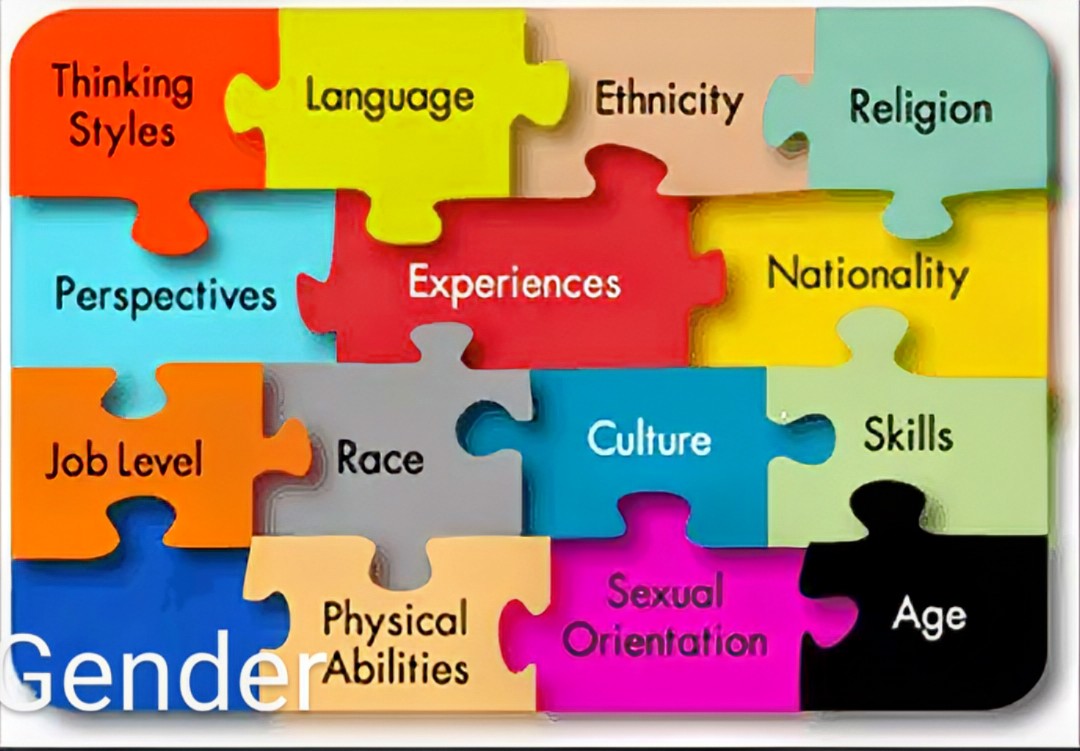Remember when Google practically wore Diversity, Equity, and Inclusion (DEI) initiatives as a badge of honor? Not so long ago, they, along with many other corporate giants, were singing the praises of inclusivity and touting their commitment to building a more equitable workplace. Fast forward to today, and the tune has changed. What began as a strategic effort to create more inclusive workplaces is now being framed as the root of all evil, the scapegoat for everything from plane crashes to natural disasters like the LA Wildfires, go figure! In Republican politics, the term “DEI hires” has been adopted as a derogative term to describe and question the qualifications of people of color and LGBTQIA community members in the workplace.
But why was DEI established in the first place, and who truly benefits from these initiatives? More importantly, why has it suddenly become the boogeyman in modern America?
The Origins and Purpose of DEI
DEI initiatives emerged as a response to long-standing systemic inequalities in the workplace and society. Historically, many marginalized groups—including women, people of color, LGBTQ+ individuals, and those with disabilities—faced significant barriers to employment and career advancement. These barriers weren’t just a matter of individual prejudice; they were built into policies, hiring practices, and corporate cultures that limited opportunities for talented individuals based on their identity rather than their skills or potential. I mean, we’re not going to pretend that systemic inequalities are nonexistent in a country where women didn’t gain the right to vote until the 1920s, and African Americans weren’t fully enfranchised until 1965 with the passage of the Voting Rights Act. While same-sex couples have made significant strides legally, including gaining federal recognition of same-sex marriage in 2015, full and consistent legal protections against discrimination, including in employment, are still an ongoing struggle and vary by jurisdiction.
Companies and organizations began adopting DEI strategies to ensure fair hiring practices, create more inclusive workplace cultures, and foster environments where diverse perspectives could thrive. DEI was not just about social justice—it was also about business sense. Studies have consistently shown that diverse teams outperform homogeneous ones, leading to higher innovation, better decision-making, and improved financial performance.
Who Benefits from DEI?
While critics (mostly white bros) love to frame DEI as a “woke agenda” favoring specific racial groups, mainly black and brown people at the expense of white people, the reality is that these initiatives benefit everyone. Yes, even you, dear reader. It’s about creating a level playing field so that talent, not privilege, determines success. And let’s be clear, that “level playing field” has historically been tilted. We’re talking about:
- women (of all races), people of color (Black, Hispanic/Latino, Indigenous, Asian, Pacific Islander, etc.)
- LGBTQ+ individuals
- People with disabilities (visible and invisible)
- Veterans and military spouses
- Older workers (of all races)
- Individuals from economically disadvantaged backgrounds (yes, even you poor white Christian Appalachian dude)
- Religious minorities
- First-generation college graduates
- Neurodivergent individuals
- Immigrants and refugees
- Single parents and caregivers,
- Formerly incarcerated individuals
- Rural populations (the Republican voting demographic)
- Workers in non-traditional gender roles (e.g., men in nursing, women in construction)
- The list goes on, a veritable United Nations of people who deserve a fair shake. Most people from these groups don’t even realize that they have benefited from DEI initiatives. Due to misinformation spread by outlets like Fox News and their favorite Republican politicians, many have been led to believe that DEI is solely about race, ignoring the broader scope of its impact on workplace fairness and economic growth. Ironically, the only group with a legitimate gripe against DEI initiatives would be uber-wealthy, straight, young, white men who are neither veterans nor have disabilities. (It’s worth noting that mental health conditions like depression and anxiety are included in disability criteria, along with alcoholism and substance abuse. So, theoretically, even someone like Elon Musk, a habitual Ketamine user (allegedly) could qualify for DEI consideration.) On another note, If you’re white, rich, healthy, young, and male, you’ve essentially won the privilege lottery, and under no circumstances should you be complaining about DEI hires “stealing your job”—you probably own the company! Furthermore, a McKinsey study revealed that white women, by far, have benefited most from DEI initiatives, particularly in gaining access to leadership positions. But I bet Fox News conveniently omitted that little nugget of information.
What Are the Examples of DEI Initiatives?
Here are some examples of DEI initiatives that workplaces implement:
- Diverse Hiring Practices – Ensuring job descriptions use inclusive language, implementing structured interviews, and using diverse hiring panels.
- Unconscious Bias Training – Educating employees and leadership on recognizing and mitigating bias in decision-making.
- Employee Resource Groups (ERGs) – Support networks for underrepresented employees (e.g., women in leadership, LGBTQ+ groups, veterans’ networks).
- Pay Equity Audits – Regularly reviewing and addressing wage gaps across gender, race, and other factors.
- Mentorship and Sponsorship Programs – Connecting employees from marginalized backgrounds with mentors and advocates within the company.
- Flexible Work Policies – Supporting work-life balance, including parental leave, remote work, and accommodations for disabilities.
- Supplier Diversity Programs – Partnering with businesses owned by women, minorities, veterans, and other underrepresented groups.
- Inclusive Leadership Development – Ensuring leadership training programs include employees from diverse backgrounds.
- Accessibility Enhancements – Making workplaces more accessible for employees with disabilities through physical accommodations and technology.
- Community Engagement and Outreach – Partnering with organizations that promote diversity and economic inclusion in local communities.
Why Is DEI Under Attack?
Despite its benefits, DEI has recently become a lightning rod for criticism. Opponents argue that it promotes “reverse discrimination,” lowers standards, and serves as a distraction from economic and operational priorities. These arguments, however, are largely rooted in misinformation and political rhetoric rather than factual evidence. The backlash against DEI can be attributed to several factors:
- Political Weaponization: DEI has been framed as a divisive issue in the culture wars, with politicians using it to rally their bases.
- Economic Anxiety: In times of economic uncertainty, people seek scapegoats for job losses and financial struggles, and DEI has become an easy target.
- Resistance to Change: Shifting workplace norms and expectations can be uncomfortable, especially for those who have historically benefited from the status quo.
- Misinformation and Fearmongering: Many critics distort DEI’s purpose, painting it as an exclusionary rather than inclusive effort.
The Path Forward
DEI was never about taking anything away from anyone. It was about giving everyone a fair chance. And the fact that we’re even debating this in 2025 is, frankly, ridiculous.
Rather than dismantling DEI initiatives, companies should be refining them. Transparency, measurable outcomes, and a willingness to adapt are key. Because, at the end of the day, a diverse and inclusive society is a stronger and more prosperous society.
Companies that continue to have DEI initiatives: Apple, Microsoft, Accenture, Salesforce, PwC, Nike, Under Amour, Intuit, Adobe, Cisco, Intel, HP, Deloitte, General Mills, Procter & Gamble, Unilever, Spotify, Netflix, UBS, Costco, JPMorgan Chase, Micron Technologies, Ben & Jerry’s, Goldman Sachs, Logitech, E.L.F. Beauty, Alta Beauty, Marriott, Delta Airlines, Macy’s, Nordstrom, Patagonia, Disney.
Companies Rolling Back or Ended DEI: Google, Tesla, Walmart, Amazon, McDonald’s, Lowe’s, Ford Motor Company, Harley-Davidson, John Deere, Caterpillar Inc., Molson Coors, Toyota, Boeing Co., Nissan, Target.
And, because the internet is a powerful tool for social change, there’s a growing movement to hold companies accountable for their actions regarding DEI. For example, campaigns like the “Latino Freeze Movement” have called for economic boycotts against brands perceived to be supporting discriminatory policies, including those related to immigration and the rollback of DEI initiatives. These consumers recognize that impacting a company’s bottom line can be an effective way to demand change. It’s truly disheartening when companies seem to prioritize political agendas over the well-being of the very people who contribute to their success. Perhaps these companies need a reminder of where their profits come from. Politicians may come and go, but loyal customers are essential for long-term survival.




